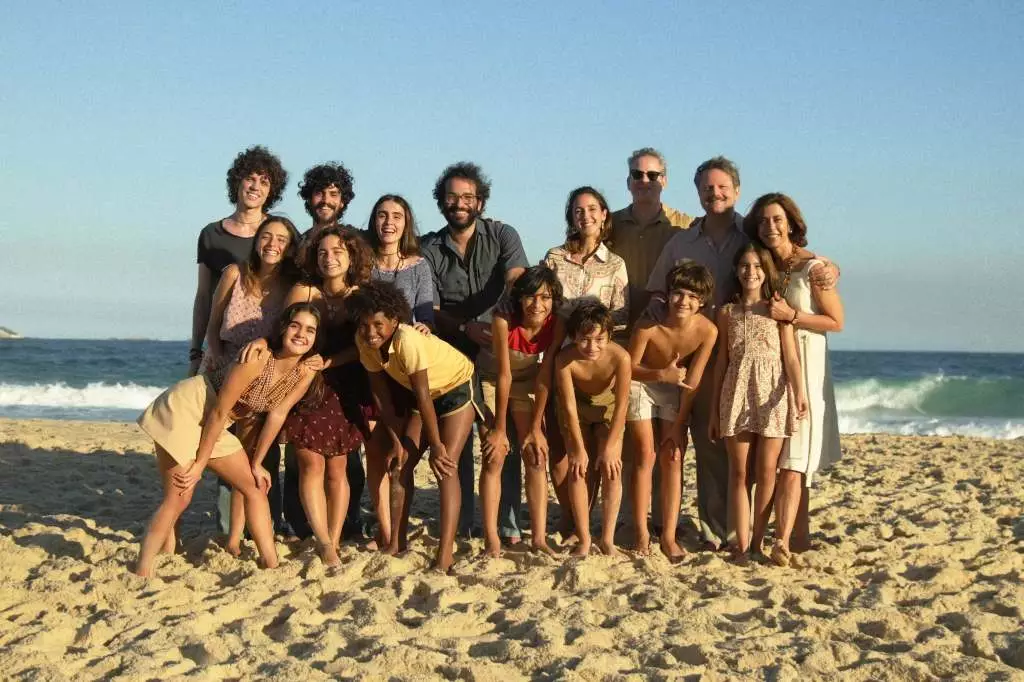In an era where cinema often reflects the tumultuous nature of societal upheaval, Walter Salles’ latest film, *I’m Still Here*, stands as a poignant testament to resilience amidst adversity. Garnering significant recognition, including a prestigious Golden Globe award for Best Actress, Fernanda Torres’ performance has ignited conversations within film circles. With a theatrical release courtesy of Sony Pictures Classics set to hit five prime locations in New York and Los Angeles, this film encapsulates a critical moment in Brazilian history while engaging with themes that resonate universally.
Salles’ storytelling prowess has been acknowledged through his previous works, particularly *Central Station*, which introduced audiences to the talented Fernanda Montenegro, who has consistently inspired the creative endeavors of her daughter, Torres. It is intriguing to observe how Torres dedicated her recent win to her mother, reinforcing the bond of familial legacy in the arts. Her evocative acceptance speech, which echoed the sentiment that art transcends generations, highlights both personal and collective resilience—a necessary reflection in today’s cultural climate.
At the heart of *I’m Still Here* lies the gripping narrative of a family navigating life under Brazil’s oppressive dictatorship, a regime that seized power in 1964. Torres portrays Eunice, a matriarch whose internal struggles and silent grief lay bare the complexities of motherhood amid societal terror. This film not only chronicles the intimate heartbreak of a family but also extends its narrative to mirror the experiences of countless individuals living under similar circumstances.
Michael Barker, co-President of Sony Pictures Classics, noted the film’s resonance across various international landscapes, remarking on its ability to speak to contemporary issues—a portrayal that strikes a chord with global audiences. As screenings across the nation garner standing ovations, the film’s success appears poised to extend beyond the box office, potentially influencing Academy voters with its poignant storytelling and heartfelt performances.
Alongside *I’m Still Here*, the cinema landscape this month sees several notable releases that reflect the diverse stories being told. Mubi’s *Grand Theft Hamlet* represents a unique collision of classical literature with contemporary gaming culture, illustrating how art forms can innovate and adapt. This documentary tells the story of two unemployed actors who creatively navigate their challenges through a reimagined staging of Shakespeare’s *Hamlet* within the chaotic framework of *Grand Theft Auto Online*. With public screenings across top markets, the film stands out for its 95% rating on Rotten Tomatoes and its inventive approach to merging high art and entertainment.
Moreover, A24’s *Sing Sing*, featuring Colman Domingo, expands its reach into over 500 theaters, while Bleecker Street’s *Hard Truths* showcases the talents of Marianne Jean-Baptiste to further diversify the cinematic offerings this month. Each film contributes to an ever-growing tapestry of narratives that captivate audiences and challenge conventional storytelling methods.
In the indie film sector, *Disfluency*, a poignant drama directed by Anna Baumgarten, unveils the deeply personal journey of a young woman grappling with academic failure and familial expectations. Engaging with contemporary themes such as mental health and personal growth, this film offers an intimate glimpse into the challenges of young adulthood. Coupled with a philanthropic approach to its release strategy—where ticket sales contribute to aiding California wildfire victims—*Disfluency* sets a model for responsible and socially aware filmmaking.
Another indie worthy of mention is *Night Call*, the directing debut of Michiel Blanchart. This French thriller delves into the unexpected journey of a locksmith drawn into a perilous encounter with a mobster, reflecting the darker side of human ambition and the quest for dignity within chaotic environments. Such stories are essential as they introduce fresh perspectives and innovative narratives otherwise overshadowed by larger commercial projects.
With a rich array of films hitting the screens, from mainstream triumphs to indie gems, the current cinema landscape illustrates a vibrant ecosystem filled with diverse voices and narratives that demand attention. As filmmakers like Salles and Torres explore themes of historical significance and personal narrative, they pave the way for future stories that capture the nuanced relationship between art and life. The upcoming nominees and their resulting recognition at prestigious events like the Oscars may ultimately transform how these stories are perceived and valued in the theatrical landscape, ensuring that the spirit of cinema continues to thrive.

